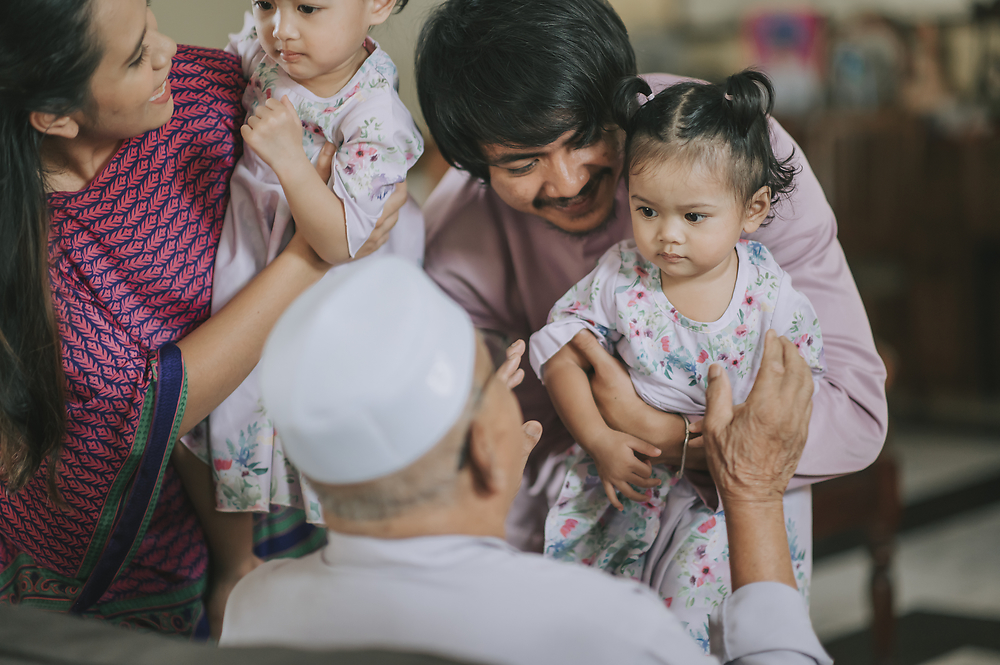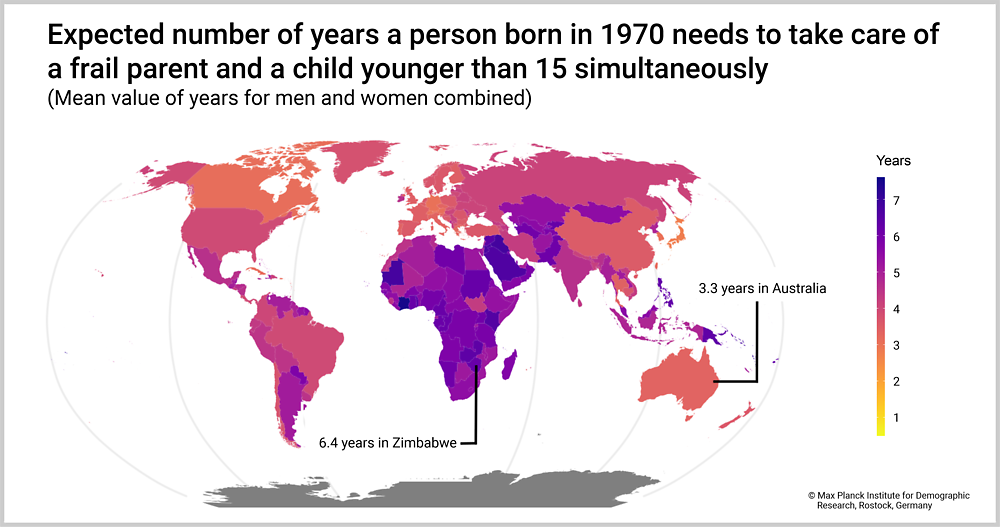September 13, 2021 | Press Release
Simultaneous Care Time Demands are Higher for Parents in the Global South

© iStockphoto.com/Edwin Tan
It is a particular challenge for individuals to take care of their frail parents and their own young children at the same time in life. This phenomenon is and will continue to be more common in countries of the Global South than in the Global North. That is what a new study by MPIDR Researcher Diego Alburez-Gutierrez and colleagues finds after analyzing demographic microsimulations using United Nations data.
The degree to which individuals find themselves caring for older parents and young children at the same time is higher in the Global South than in the Global North. This contradicts the long-standing, but so far untested, assumption, that this generational overlap is a particular challenge for the aging populations of Europe and North America.
“We project that this phenomenon will increase in the Global South for younger cohorts, but it might already have peaked in Europe and North America”, says Diego Alburez-Gutierrez, research scientist at the Max Planck Institute for Demographic Research (MPIDR) in Rostock, Germany.
The researcher and his two colleagues defined demographic ‘sandwichness’ as the position in which individuals find themselves if they simultaneously have frail older parents within five years of death and children aged 15 years or younger. The authors used this definition to provide the first global estimates for caregivers born between 1970 and 2040. They published their results in the journal Population and Development Review.
Microsimulation to analyze potential care needs around the world
The researchers ran thousands of demographic microsimulations to analyze the effect of changes in birth and survival rates on the potential care needs around the world. The analysis used data from the 2019 Revision of the United Nations World Population Prospects, an open data resource for demographic information covering the entire world population.

Download Figure (PNG File, 1 MB)
Nevertheless, the co-existence of multiple generations should not be a burden on individuals and families. “For most countries in the Global South, we project an increase in the lifespan overlap between grandparents and their grandchildren”, says Diego. Indeed, it might also have positive consequences for parents and children in countries of the Global South.
On the one hand, the increasing time generations spend together implies more caretaking demands over the entire adult life. On the other hand, it opens up the opportunity for grandparents to take care of their grandchildren, with potential benefits for grandparents and grandchildren.
There are still challenges ahead. “Not only are parents in the Global South more likely to be ‘sandwiched’ between generations - they often lack access to formal childcare, pensions, and many other systems of social support that parents in Europe and North America take for granted. We need more research to understand the experiences of these parents”, says Diego.
Original Publication
Alburez-Gutierrez, D., Mason, C., Zagheni, E.: The “Sandwich Generation” Revisited: Global Demographic Drivers of Care Time Demands. Population and Development Review (2021). DOI: 10.1111/padr.12436
Authors and Affiliations
Diego Alburez-Gutierrez, Max Planck Institute for Demographic Research, Rostock
Carl Mason, University of California at Berkeley
Emilio Zagheni, Max Planck Institute for Demographic Research, Rostock
Additional Information
Diego Alburez-Gutierrez wrote a piece about this paper for IUSSP's Online News Magazine.